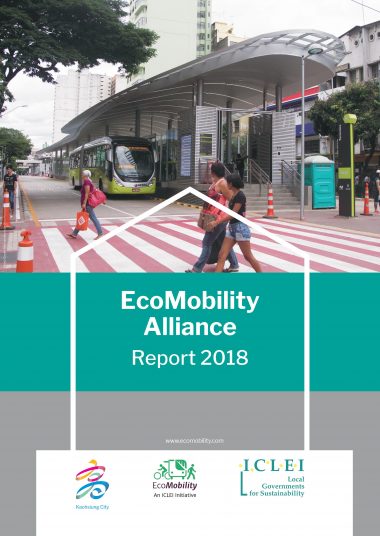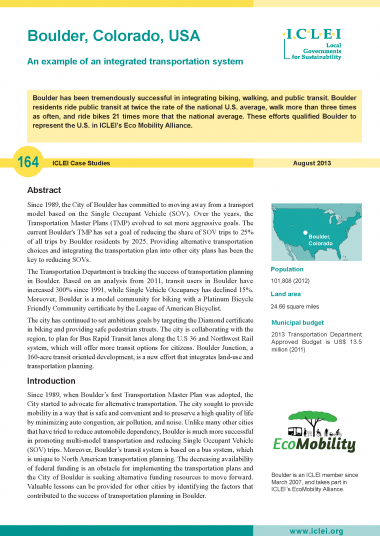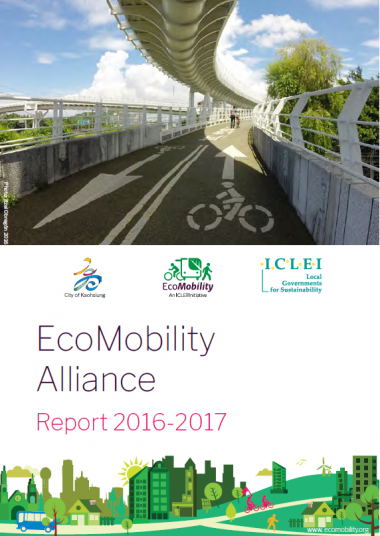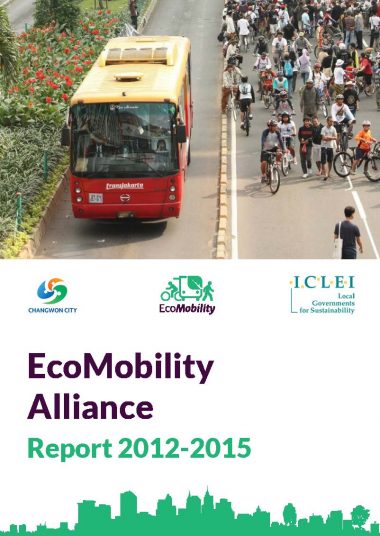Boulder maintains comprehensive policy and management strategies to provide multi-modal transportation systems with very detailed performance measurement and reporting to the general public. Parking options influence an individual’s mobility choice that is often underestimated. Ample provision of parking spaces can undermine the city’s efforts to encourage public transport usage, and it wastes valuable open space. Furthermore, low parking rates do not reflect the real cost of parking space.
To support its community’s social, economic and environmental goals, Boulder emphasizes the creation of customized solutions that meet access goals. In 2014, the Access and Management and Parking Strategy (AMPS) was formulated by the interdepartmental AMPS Steering Committee that included representation from Community Vitality, Transportation, Planning and Communications. It is an approach to enhance access to existing districts through six focus areas, including on-and off-street parking and parking pricing.
Parking Cash Out
Downtown Boulder has served as a testbed for parking and access management programs and technologies over the past decade. One example is the “Parking Cash Out” pilot with downtown businesses. Parking Cash Out is a financial incentive offered to employees to encourage the use of commute modes other than driving alone, which both reduces parking demand and helps ensure that company benefits are distributed
equitably. Commuters can choose to either keep their employer-subsidized parking spot or forgo parking and receive the approximate cash equivalent of the cost of parking by using an alternative transportation option. One of the Boulder-based company subscribed to this system and also offered an EcoPass which allows unlimited access to all public transport. 33 percent of the workforce participated in this program, and the company estimated that the net savings amount to approximately 17,000 USD/month. Implementing this reportedly did not cost much to the city, and it resulted in lower parking demand and single-occupant vehicle.
Data-driven management
Boulder also used data-driven parking and access management decisions by collaborating with Smarking, a data analytics company which connects on- and off- street parking data points from different sources into one comprehensive dashboard. A system to collect data points is installed in all city-owned parking garages. Through real-time data collection, the city is working to use demand-based pricing to address peak demands.
In addition, Boulder is considering parking pricing as a tool to redistribute parking demand in Downtown Boulder. An extensive community engagement process is in the process to review, and development of recommendations on parking policy, with a particular focus on the role of pricing, plays in management parking to create community access.
Boulder shows an exciting example of connecting parking and access management. The strategy is to work with employers to restrict the need for parking and encouraging walking, cycling, the use of public transport and car-pooling.




